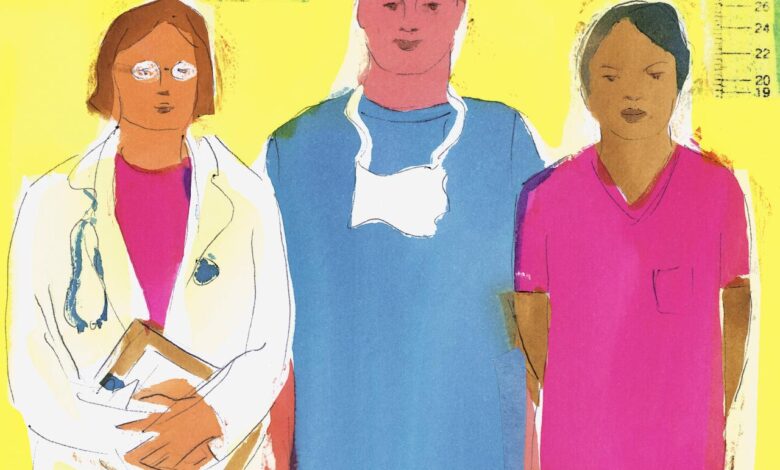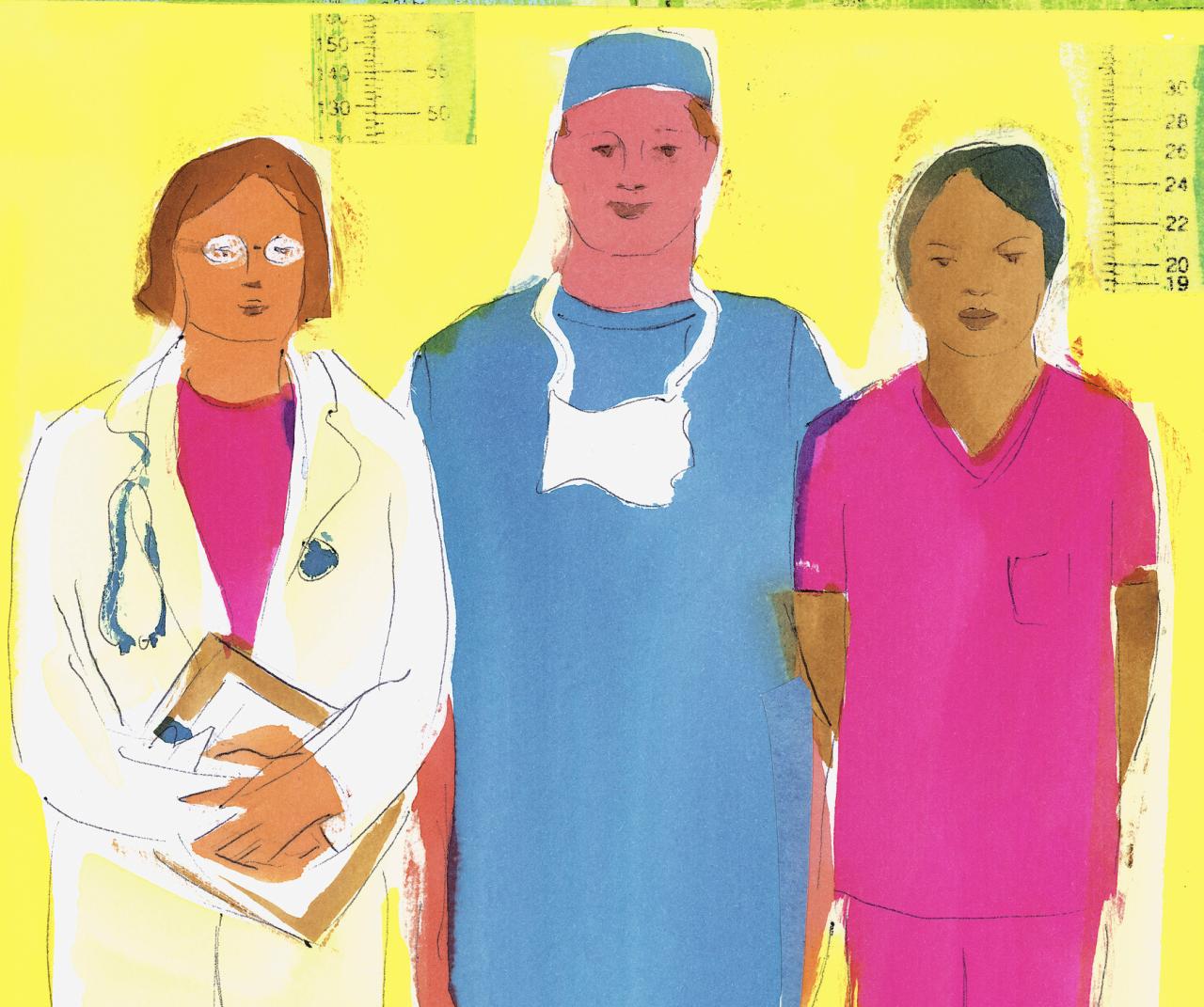
Are Female Doctors Better Than Male Ones?
Are female doctors better than male ones? This question, while seemingly simple, opens a Pandora’s Box of complex issues surrounding gender, healthcare, and patient experience. It’s not about declaring one superior; instead, it’s about exploring the nuances of how gender might influence the doctor-patient dynamic, treatment approaches, and ultimately, patient outcomes. We’ll delve into patient perceptions, specialty distributions, communication styles, and the ever-present shadow of unconscious bias in healthcare.
This isn’t about pitting men against women in white coats, but rather a thoughtful examination of a fascinating and often overlooked aspect of the medical profession. We’ll look at data, explore anecdotal evidence, and consider the impact of societal expectations on both doctors and patients. Get ready to challenge your assumptions and consider a perspective you might not have thought of before.
Bias and Implicit Stereotypes in Healthcare: Are Female Doctors Better Than Male Ones

The persistent debate surrounding gender differences in medical performance often overlooks a crucial factor: the pervasive influence of implicit bias. This isn’t about conscious prejudice, but rather the unconscious stereotypes and attitudes that subtly shape our perceptions and actions. Understanding how these biases affect patient care is vital to ensuring equitable and high-quality healthcare for everyone.Implicit bias in healthcare manifests in various ways, impacting how we perceive, interact with, and treat both male and female physicians and their patients.
Societal conditioning plays a significant role in shaping these biases, influencing everything from initial patient impressions to crucial treatment decisions.
The Role of Implicit Bias in Shaping Perceptions of Male and Female Physicians
Implicit biases can lead to different evaluations of male and female physicians, even when their skills and experience are comparable. For instance, a female physician might be perceived as less authoritative or competent than her male counterpart, even if her medical expertise is superior. This can stem from ingrained societal stereotypes that associate certain traits – such as assertiveness or decisiveness – more strongly with men than with women.
Conversely, a male physician might be perceived as more competent than he actually is, due to a similar bias. These preconceived notions can significantly influence patient trust, compliance, and ultimately, health outcomes.
Societal Expectations and Gender Stereotypes Affecting Physician Performance Evaluation
Societal expectations profoundly impact how we evaluate physician performance. Female physicians might face stricter scrutiny and higher standards than their male colleagues, needing to demonstrate exceptional competence to overcome implicit biases. This uneven playing field can manifest in performance reviews, promotion opportunities, and even patient satisfaction scores. Similarly, male physicians might benefit from a more lenient evaluation, potentially overlooking shortcomings that would be more readily identified in a female physician.
These discrepancies contribute to gender disparities in career advancement and leadership positions within the medical field.
Impact of Unconscious Bias on Patient Referrals and Treatment Decisions, Are female doctors better than male ones
Unconscious bias can subtly influence critical medical decisions, such as patient referrals and treatment choices. A physician, consciously striving for objectivity, might unconsciously favor referring a patient to a male specialist over a female one, even if both are equally qualified. This could be due to an ingrained association of certain specialties with masculinity or a subconscious belief that a male specialist would be more competent.
Similarly, treatment decisions might be subtly influenced by implicit biases, leading to variations in care based on the gender of both the physician and the patient. These seemingly minor variations can accumulate, creating significant health inequities over time.
Illustrative Narrative of Implicit Bias in Patient-Physician Interactions
Imagine Sarah, a young woman experiencing severe chest pains. She researches two cardiologists: Dr. Miller, a male physician with a long list of publications and accolades, and Dr. Chen, a female physician with similar qualifications. Despite Dr.
Chen’s impressive credentials, Sarah feels a subconscious unease, a lingering doubt fueled by implicit biases that associate leadership and expertise more strongly with male physicians. She chooses Dr. Miller, not because of any rational assessment of their respective abilities, but due to the subtle influence of unconscious stereotypes. This scenario highlights how deeply ingrained biases can shape even the most critical healthcare choices, potentially impacting Sarah’s timely access to effective treatment.
So, are female doctors better than male ones? The simple answer is: it’s not that straightforward. Our exploration revealed a complex interplay of factors – patient preferences, communication styles, specialty choices, and unconscious biases – all contributing to the overall healthcare experience. While studies may show minor differences in certain outcomes, the most crucial takeaway is the need for a healthcare system that values diverse perspectives and prioritizes effective communication and patient-centered care, regardless of the doctor’s gender.
The focus should always be on providing the best possible care for every individual patient.
The whole “are female doctors better than male ones?” debate is silly, right? It’s about individual skill, not gender. Speaking of things needing a serious overhaul, I just saw that Elon Musk confirms Twitter will revise user verification process , which is way more important than comparing doctors based on their chromosomes. Ultimately, finding a great doctor, male or female, comes down to finding the right fit for your needs.
The whole “are female doctors better than male ones?” debate is fascinating, isn’t it? It’s all about individual skill, not gender, really. But thinking about capable individuals, I was reading this amazing article about the woman who will lead Chile’s counter-revolution , and it made me realize strong leadership comes in all forms. So, back to doctors – the best doctor is the one who’s best for *you*, regardless of gender.
So, the whole “are female doctors better than male doctors?” debate is endlessly fascinating, isn’t it? It’s a complex question, and honestly, I think it’s less about gender and more about individual skill. Speaking of complex situations, check out this article about the wife of the new special counsel on the Trump case – wife of new special counsel on trump case donated to biden campaign and produced michelle obama film – which really highlights how intertwined personal lives and professional roles can be.
Anyway, back to doctors – I think finding a good doctor, regardless of gender, is all about finding the right fit for *you*.

